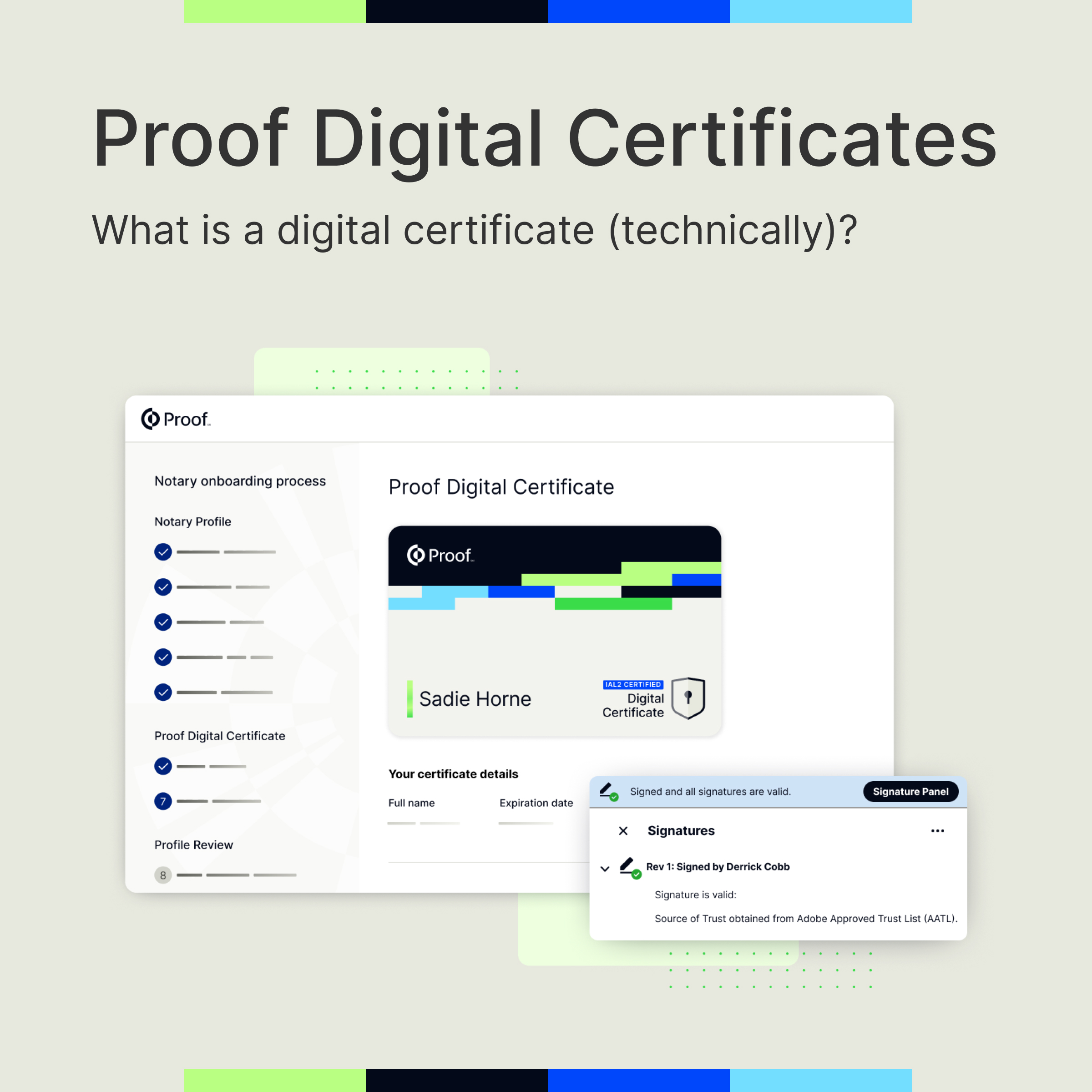A Guide to Closing on a House Remotely

Traditionally, closing on a house required a lot of people in a room together, poring over documents and signing their names. The pandemic has accelerated digital transformation in real estate, with one survey claiming that the number of title and settlement companies offering digital closings increased by 228% and the number of remote online notarizations for real estate transactions grew by 547%. This has impacted the entire real estate process, including how closings are done. As remote closings become a standard practice, understanding what they are and how they work can make purchasing a dream home easier for everyone involved.
What is a remote house closing?
A remote closing follows the same process as a traditional closing, except that verification is completed digitally. In a remote closing, the parties can:
- Verify identities virtually
- Sign documents electronically
- Notarize signatures virtually
- Transfer funds via wire transfer
Instead of having to take time away from work to travel to an attorney’s office, the parties can complete the transaction from wherever they are. Additionally, for people relocating, this process means less travel and hassle.
How does a remote house closing work?
The first thing that buyers and sellers should understand is that not all digital closing methods are remote closings. Some use electronic documentation and signatures but still require people to complete the process in-person.
The three most often used models are:
- In-person e-notarization (IPEN): All parties must be physically present, but parties can sign documents electronically, reducing paper waste and enabling digital storage.
- Hybrid eClosing: Parties sign some documents digitally before the meeting then meet in-person with a notary to complete the process.
- Remote Online Notarization (RON): Parties use video conferencing, digital documentation, and remote notary services to complete the entire process without meeting in-person.
The pros and cons of a remote house closing
Remote house closings offer convenience, making them seem like an obvious option. However, it’s important to recognize that remote closings have challenges too.
Pros of a remote house closing
When looking at the benefits of a remote house closing, the three primary ones that often come to mind are:
- Physically safe: COVID-19 prevention protocols can also apply to flu and cold seasons, keeping everyone healthier.
- Convenient and efficient: Without worrying about travel or coordinating a time to meet, it’s easier to align the closing with everyone’s schedules.
- More time to review closing documents: Parties usually receive remote closing documents in advance rather than at the time of closing, so they can review, research, and ask questions before signing.
Cons of a remote house closing
People need to keep in mind that no process is perfect. Some challenges to consider when closing on a house remotely are:
- Heavy reliance on real estate professionals: When the entire process is remote, buyers may not be able to visit the home for the inspection and have to rely on real estate agents.
- Can’t do a final house walkthrough: Buyers who did the inspection in person won’t be doing a final walkthrough to check the condition for any changes since then.
- Need to check for legality in your state: State laws should be reviewed on a case-by-case basis.
How to remotely close on a house
Since remote closings are convenient, they are becoming more popular. As buyers and sellers navigate this new digital experience, they want to know what to expect.
Start with the real estate agent
Buyers need to place a lot more trust in their real estate agents during a remote closing. The agent becomes a partner in the process, engaging in the inspection and final walkthrough. It’s important to interview the agent and talk to other buyers.
Ask about experience
It’s also important to make sure the agent has experience with remote closings. Buyers should make sure that the agent understands the process, knows how to negotiate with sellers, finds the right property, and sources local lenders.
Know the agent’s schedule
Since buyers rely on the agent to do in-person activities for them, the agent needs to be available during business hours. It’s important to know that an agent with another job can make time for these tasks.
Collect and review the documents
With remote closings, due diligence and document review is more important than ever. Without being physically present, buyers need to carefully review all documentation, including:
- Due diligence clauses in the contract
- Inspection documents
- Financing materials
- Appraisals
Agree on form and delivery of documents
During a remote closing, everyone needs to be aware of which documents will be signed digitally, including:
- Transaction documents
- Party entity documents
- Financial documents
- Real property documents
The parties may also want to consider including an “electronic signature rider” by updating the transaction documents’ language or adding new provisions.
Identify documents that need notarization
Usually, the documents that need to be notarized are the:
- Deed
- Mortgage, Deed of Trust, or Security Instrument
- Promissory Note
- Notice of Right to Cancel or Right to Rescind
Find a notary
The notary is a person, commissioned by the state, who attests to the signer’s identity. In a remote closing, the parties will engage in this process using an audio-visual recording.
Pay closing costs
In a remote closing, the buyer will usually initiate a wire transfer to pay the closing costs. Banks usually process wire transfers in 1-2 business days, but it’s important to remember that they don’t process transactions after the bank closes for the day, weekends or holidays.
Arrange for the transfer of keys
In a traditional closing, the seller hands over the keys. In a remote closing, it’s important to determine the timing and delivery of keys in advance, either through delivery or when arriving at the new home.
How Notarize can help your clients close on a house remotely
Notarize’s remote online notarization platform simplifies the notarization process, which can provide enhanced security and streamline the remote closing process. With the NotarizeSM platform, signers can use any device to get their documents notarized, from the comfort of their own homes. Schedule a demo to learn more about how Notarize can help make closing on a house as easy and efficient for your clients as possible.














































































.jpg)





.png)

.png)







.png)

















.jpg)













.png)

.jpg)

